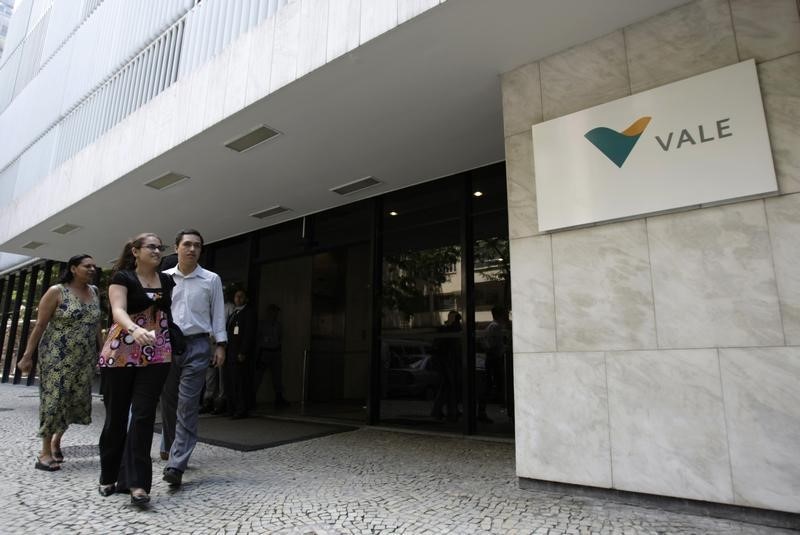(Adds detail of Valemax program, investor conference)
LONDON, Dec 4 (Reuters) - Brazil's Vale SA VALE5.SA said on Friday that it plans to sell its 11 remaining Valemax iron ore carriers and lease them back in transactions that could raise $1.1 billion.
Vale has said it has experienced some delay in selling the ships, the key to its attempt to cut transportation costs between its Brazilian mines and Asian customers, as it seeks to get the best freight rates under contracts to lease the ships back from the new owners.
Each more than 360-meter-long (1181-ft-long) ship can carry 380,000 to 400,000 tonnes of ore and are among the biggest vessels afloat.
Vale has been selling its part of the world's 35-vessel Valemax fleet for about $110 million each, Luciano Siani, chief financial officer of Rio de Janeiro-based Vale told investors at a conference in London.
The ships are needed to help Vale compete with its principal Australian rivals in the world sea-borne iron ore market. BHP Billiton (L:BLT) Ltd BHP.AX and Rio Tinto (L:RIO) Ltd RIO.AX , which are closer to China, the world's largest market for the mineral, the main ingredient in steel.
By carrying more ore in each vessel, Vale's per-tonne freight costs falls. Cost cutting has become an urgent matter for Vale as iron ore .IO62-CNI=SI fell below $40 per tonne for the first time since spot-market pricing was implemented for major customers in 2008.
It is also now at its lowest since 2005, when prices were still set between major steelmakers Vale and other top miners at annual negotiations.
Vale is also counting on the ships to reduce its carbon footprint, the company said. The current Valemax vessels burn 35 percent less fuel per tonne of ore moved and the newer vessels will burn even less, said Peter Poppinga, head of Vale's ferrous metals division.
During a question and answer session with investors in London, Poppinga also said Vale plans to drastically reduce ore stockpiles in its southern mine system in Minas Gerais state part of efforts to "shrink" its southern system operations.
The southern system has higher costs, and produces lower grade ore on average than the company's northern system, which is centered on its giant Carajas mining complex in Brazil's Amazon (O:AMZN) state of Pará.
With iron ore prices low, the company may not pay dividends next year in order to preserve cash to finish its planned final year of a giant expansion to its Carajas mine complex, Siani said.
